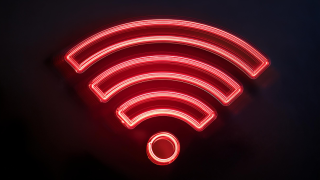The project, by King’s College London and the University of Bristol, will involve more than 400 experts in telecommunications networks, cyber, artificial intelligence (AI), digital humanities, social sciences and arts, they said.
Professor Dimitra Simeonidou (pictured), director of the University of Bristol’s Smart Internet Lab and co-director of Bristol Digital Futures Institute, said: “The public is only beginning to see first-hand the enormous potential of 5G networks, an area which we have been working on for many years.”
The new centre, 6G Futures, “will now focus on the next generation mobile networks – 6G and beyond – and the truly awe-inspiring capabilities these will bring”, said Simeonidou, an optical communications specialist who used to work with Alcatel.
She said that 6G, which “will be inherently human-centric”, will take the academics “far beyond future-forecasting: crucially, this is about having the specialist knowledge and expertise to transform visions into deliverable solutions, accelerate innovation, and make a positive difference to society worldwide.”
Her colleague in the project is Professor Mischa Dohler, professor in wireless communications at King’s College London, the university where two centuries ago Charles Wheatstone pioneered the electric telegraph.
He said: “As adoption of 5G accelerates around the world, it’s important the UK is prepared for 6G as the next generation mobile technology. The creation of this centre is a notable moment for the UK technology sector.”
Dohler, whose sister, Anita Döhler, CEO of the Next Generation Mobile Networks (NGMN) Association, is also steering 6G work, said: “We will be developing novel architectures, incorporating federated exchange and self-synthesising mechanisms, advance the internet of skills, and embed blockchain, quantum and federated AI technologies.”
King’s College London specialises in mobile networks and the University of Bristol has particular expertise in wired/wireless technology and network layers, the institutions pointed out.
The two universities said they expected download speeds to be 10 times faster than 5G. But 6G “will also harness the ability of trillions of connected machines to transfer sensory information as part of the communications experience, creating a whole new cyber-physical continuum”, they said.
“Furthermore, 6G will comprise networks which design, organise, and sustain themselves, offering previously unchartered levels of efficiency.”
Dohler noted: “But it’s not just pure tech: we’ll be working on co-creation with verticals toward some truly exciting and societally impacting use-cases, while contributing to policy, alliances and global standards.”






